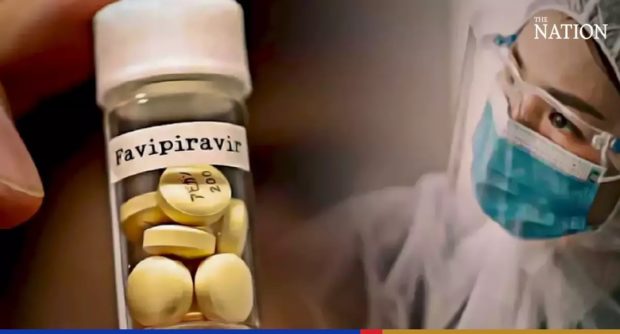
The Nation/Asia News Network
BANGKOK — Thailand is using some 60 million Favipiravir pills a month to treat people with symptomatic Covid-19 disease, raising concerns in a medical specialist that the virus may turn resistant to the drug.
The concern was voiced on Tuesday by Assoc Prof Dr Thawee Chotepithayasunon, a specialist of the Medical Services Department.
Thawee said about 90 percent of people do not have symptoms or only have mild symptoms after they are infected with the Omicron strain of the SARS-CoV-2 virus, so they should not be given the Favipiravir antiviral drug.
The doctor said statistics showed that Thailand is using about 2 million pills of Favipiravir a day or 60 million pills a month, which was very high.
“Since the antiviral drug is used in very high amounts now, specialists fear drug resistance. Theoretically, it can happen,” Thawee said.
He said once the Covid-19 virus becomes resistant to Favipiravir, the antiviral drug would become useless.
He said infected people should be treated based on their symptoms and people with no symptoms should not be given Favipiravir at all.
The doctor said the Public Health Ministry has issued new treatment guidelines for hospitals to admit only infected people with high fever above 38 degrees Celsius or people with comorbidities or the elderly who may need respirators or may see their symptoms worsen later.
Thawee said 90 per cent of infected people will be able to cure themselves in course of time. Doctors who are in charge of home isolations may consider giving them Far Talai Jone (Andrographis paniculata) herb.
The doctor added that it was very rare for people infected with Omicron to see their condition worsen from green to red — the most serious condition.
RELATED STORIES
In Cebu City, price cap on COVID drugs sought
Vietnam to approve remdesivir for COVID-19 treatment – state media
Thailand’s top virologist predicts surge in Omicron infections soon
Dementia symptoms found in some COVID-19 patients after recovery